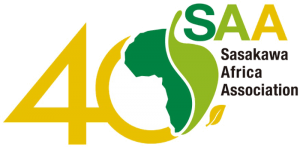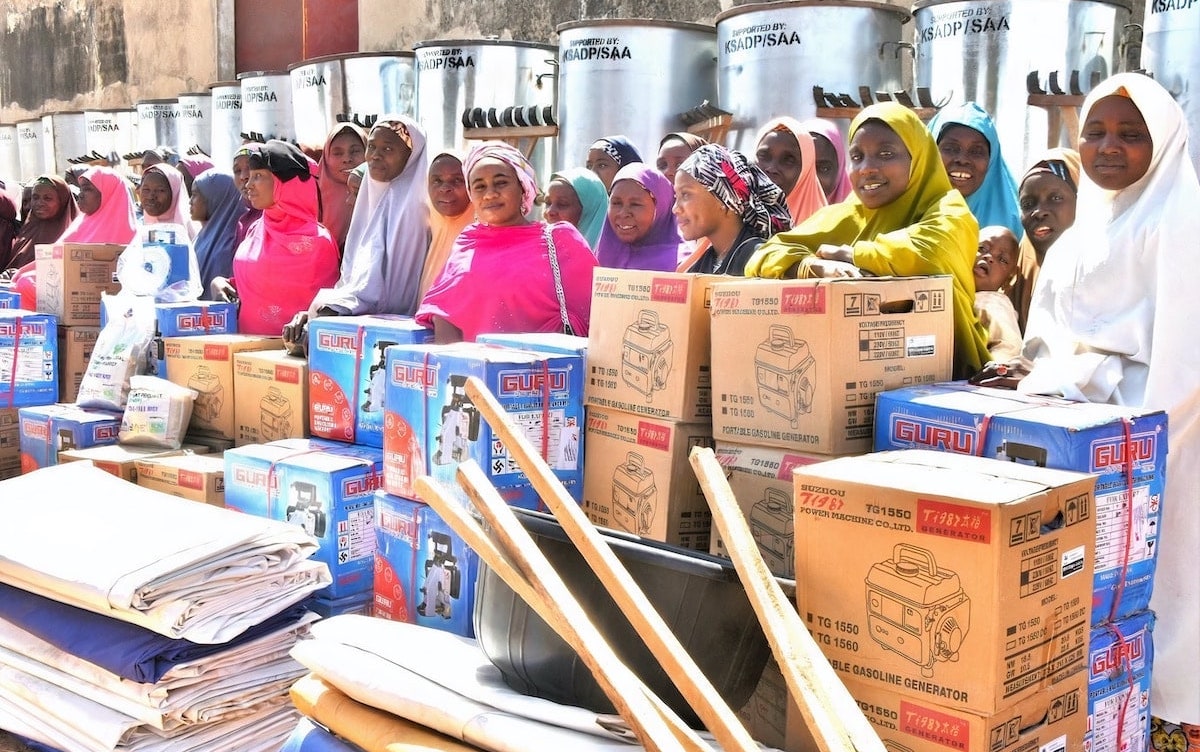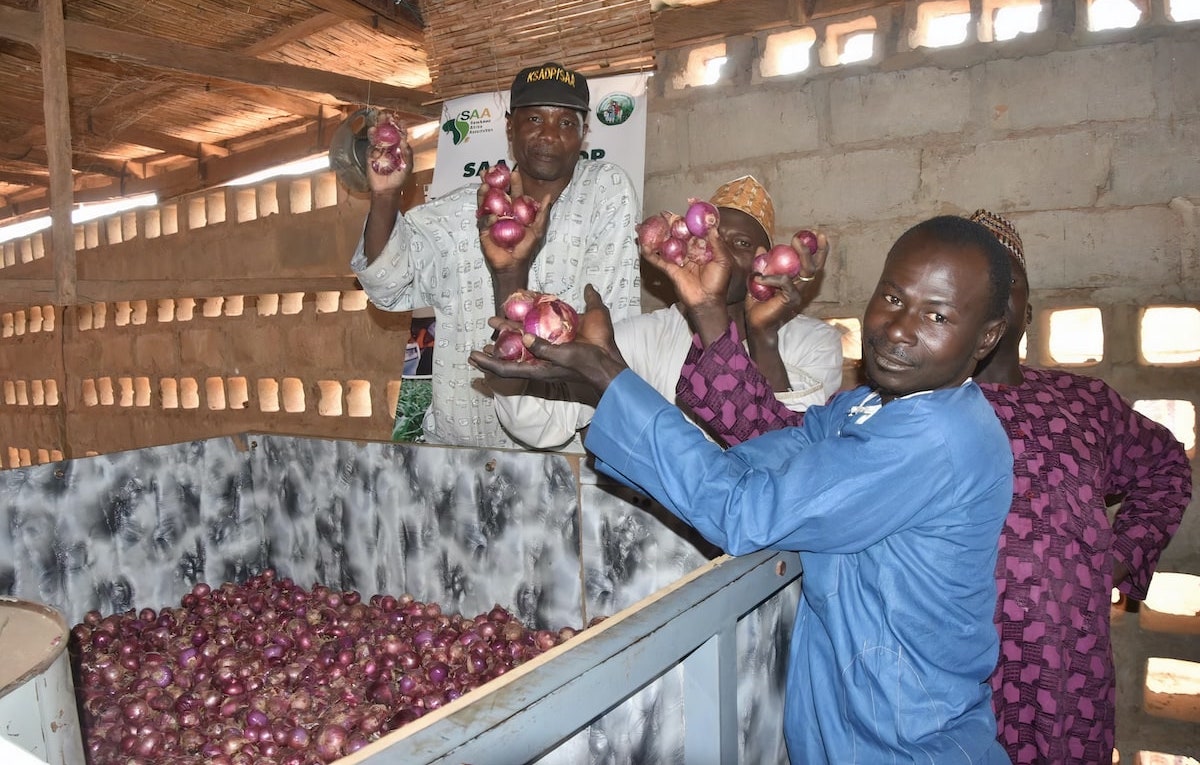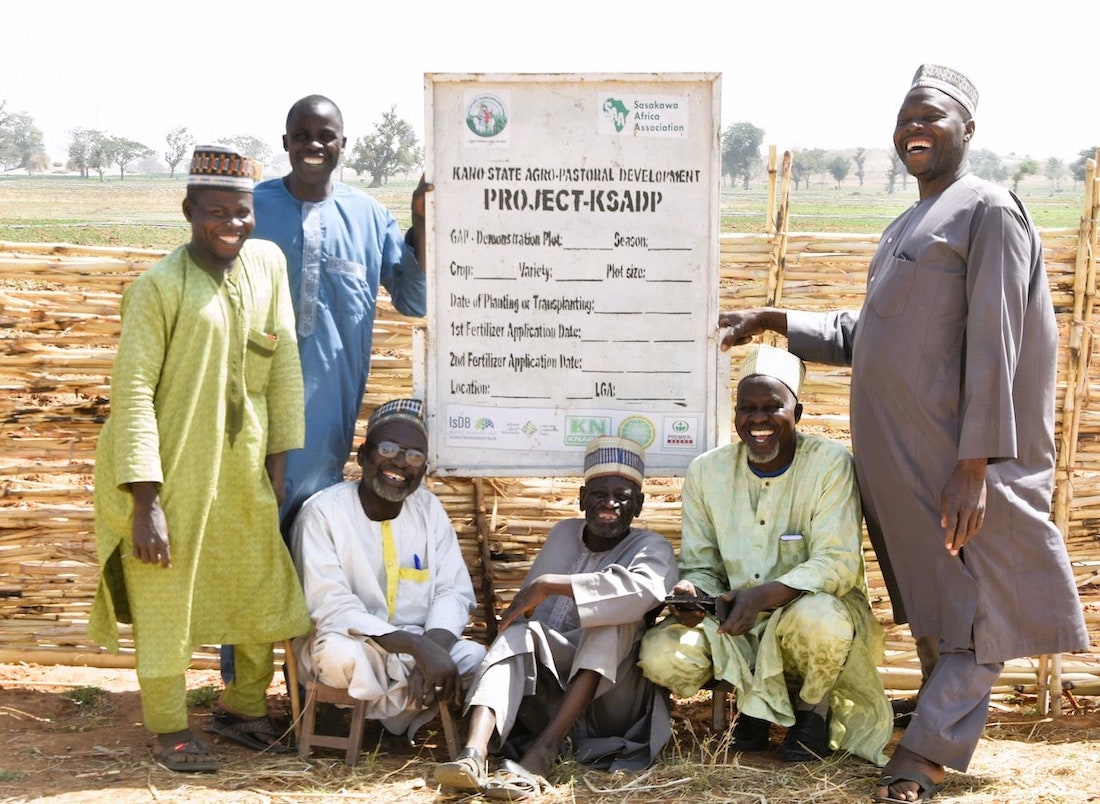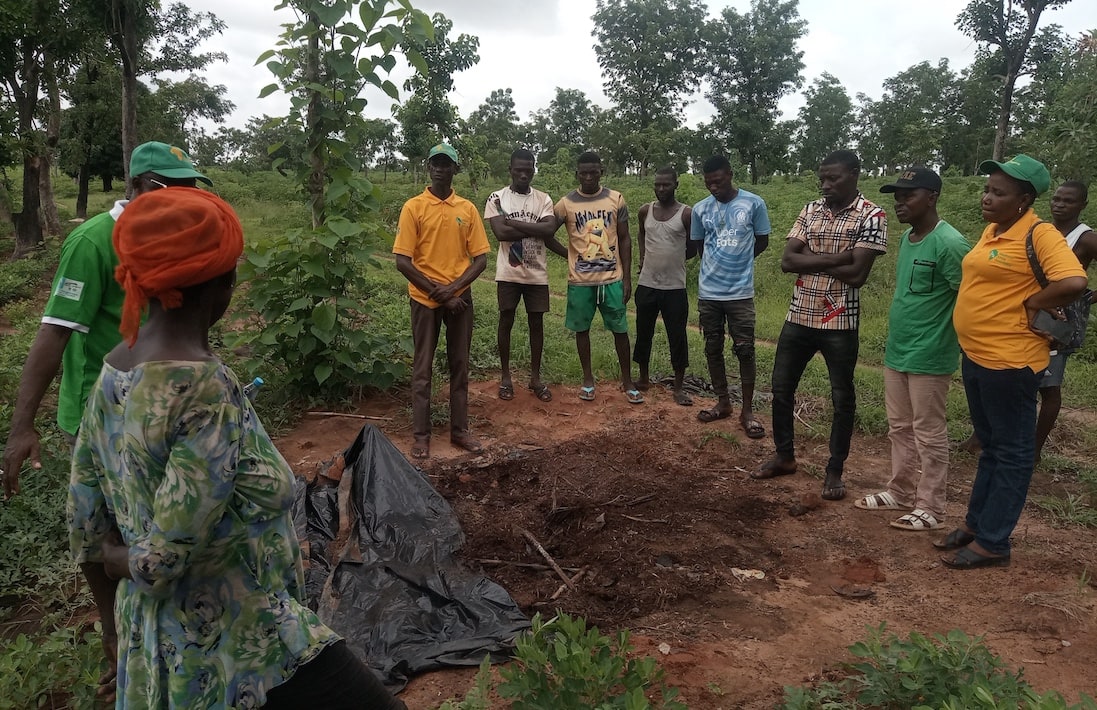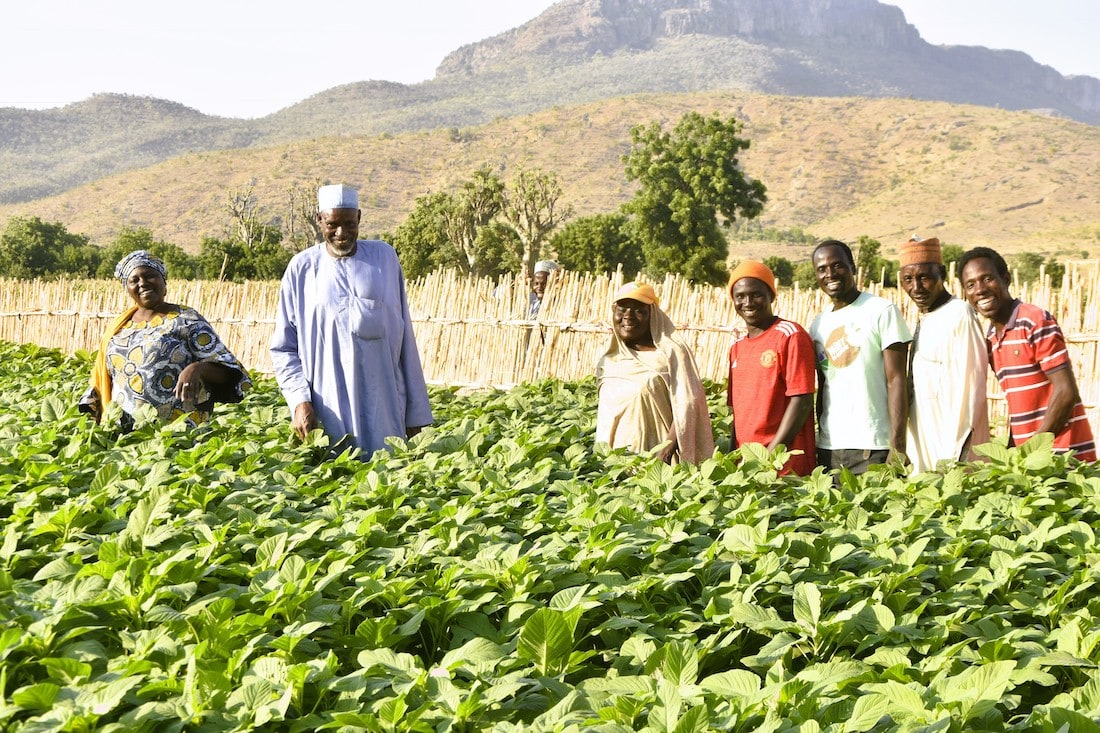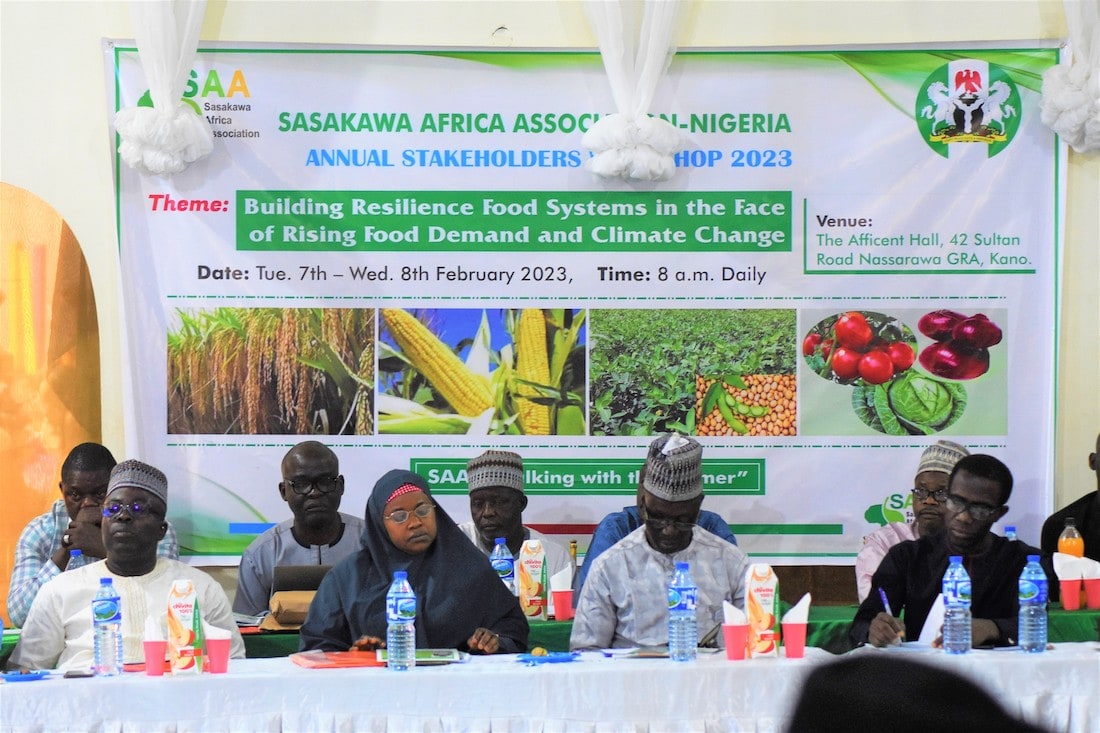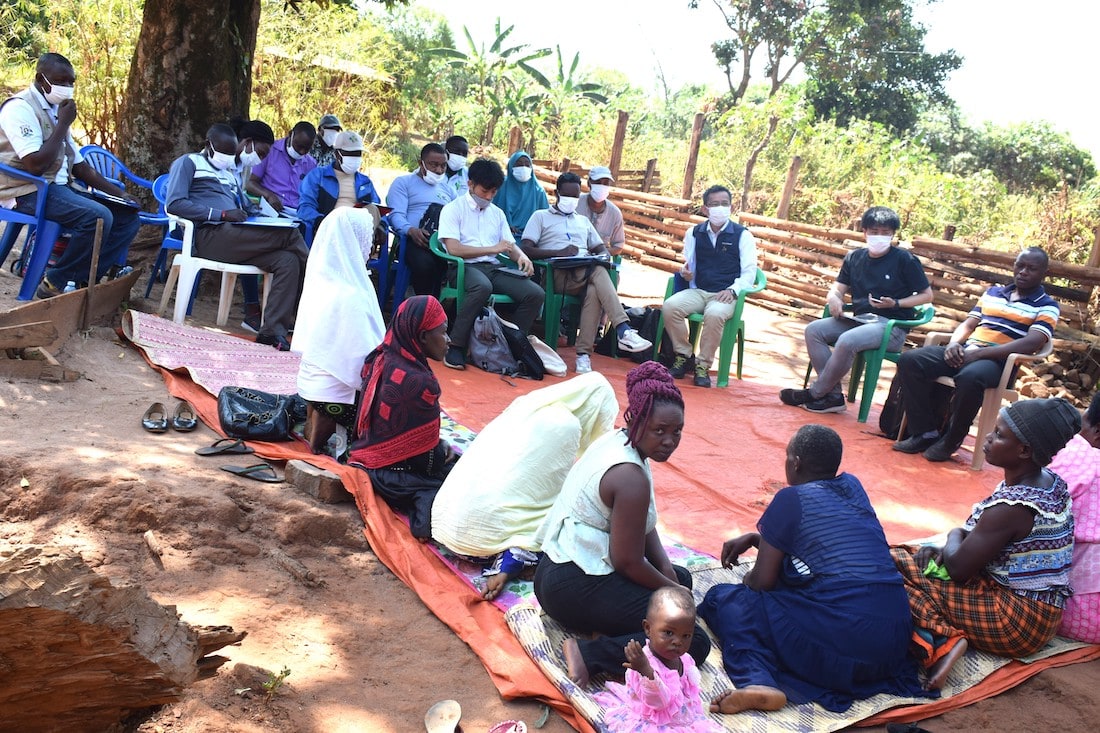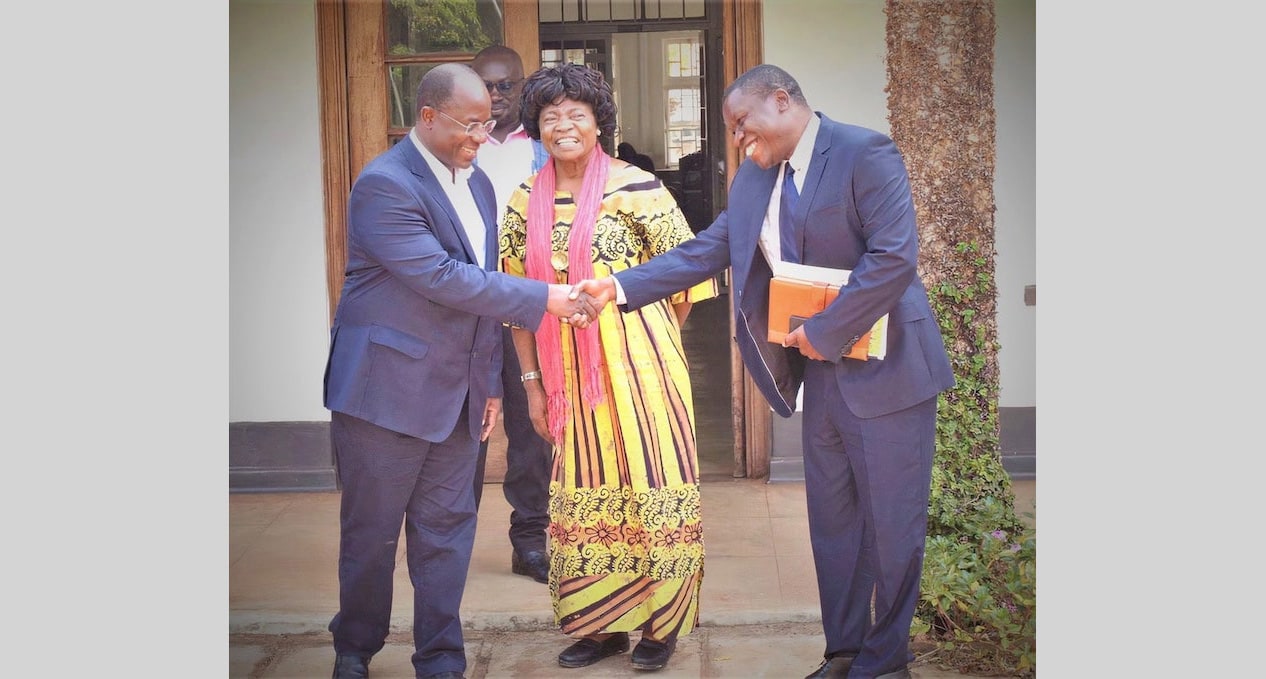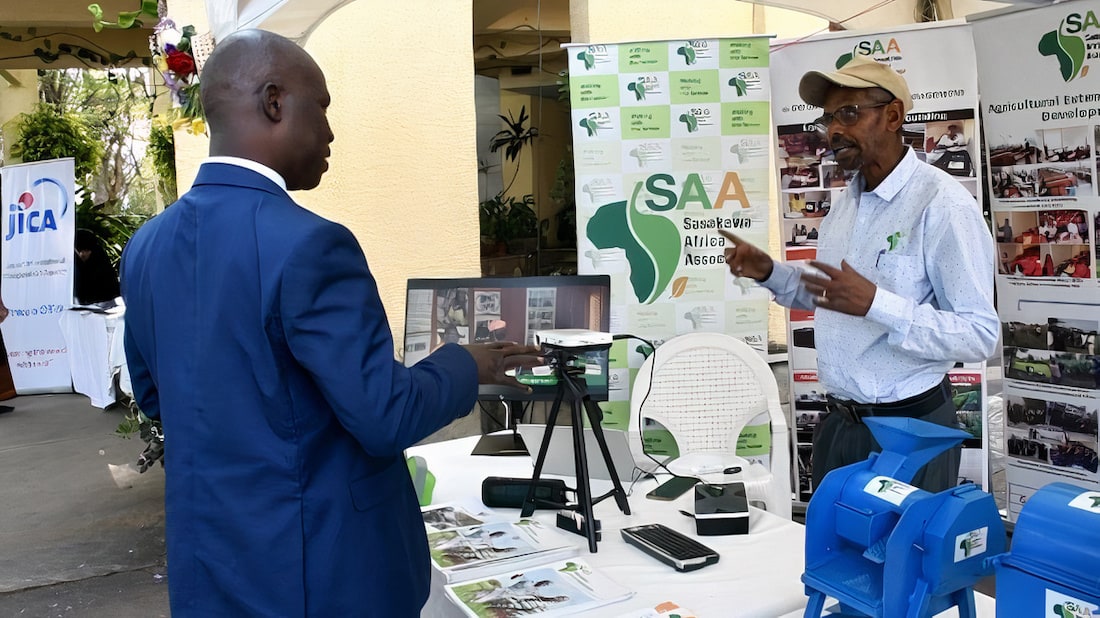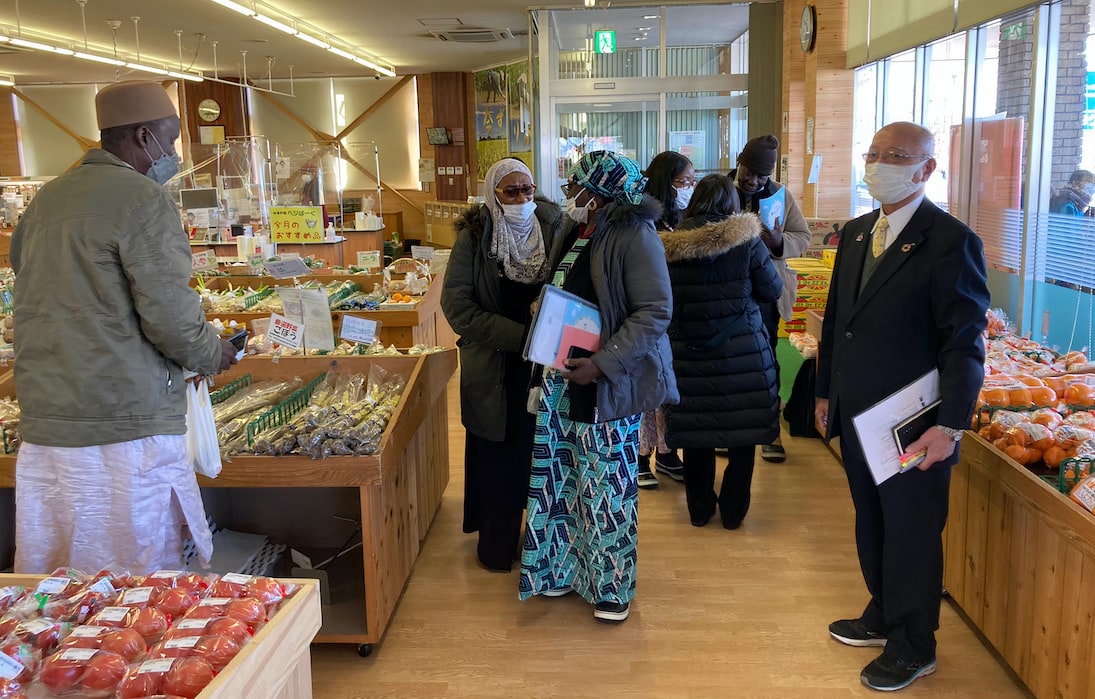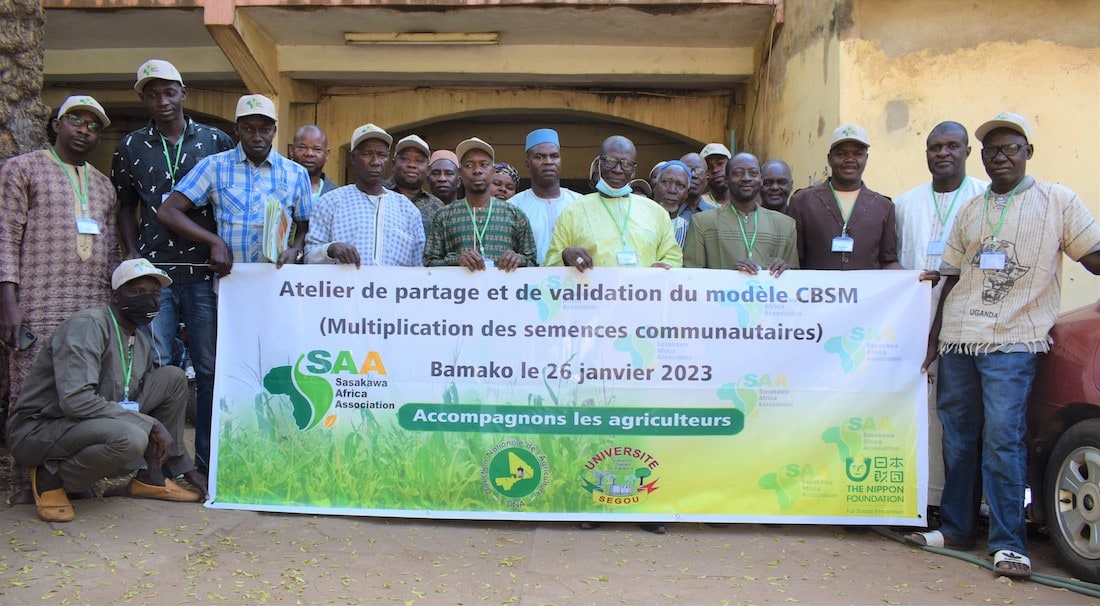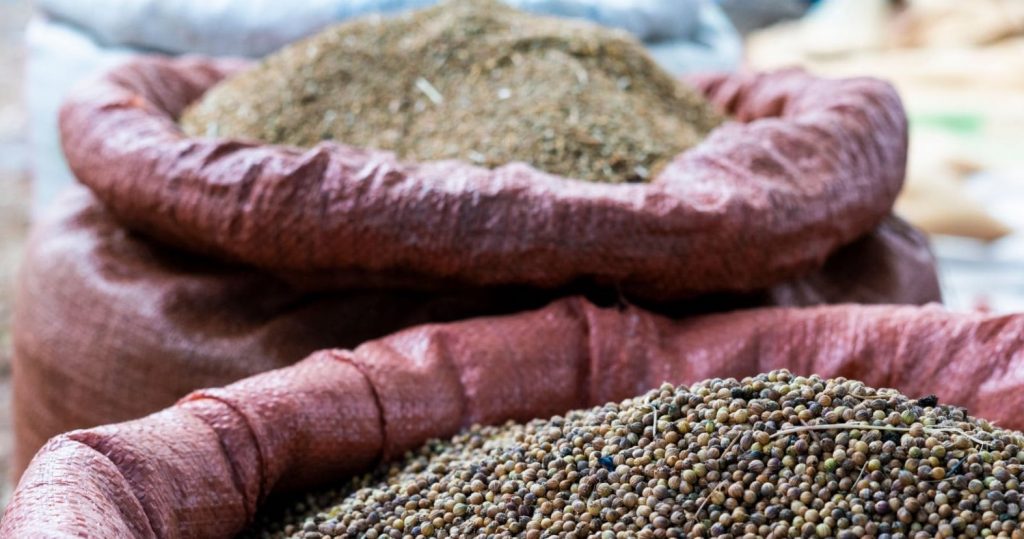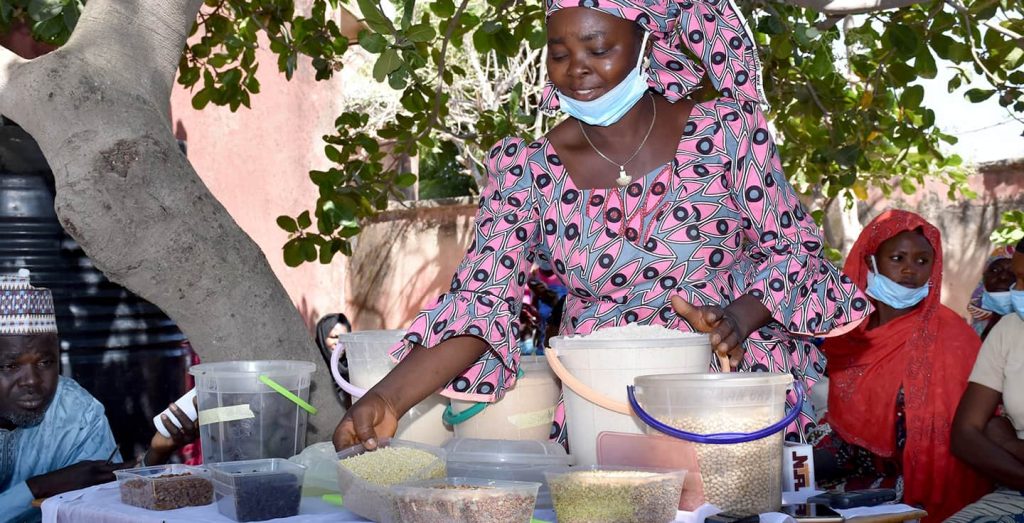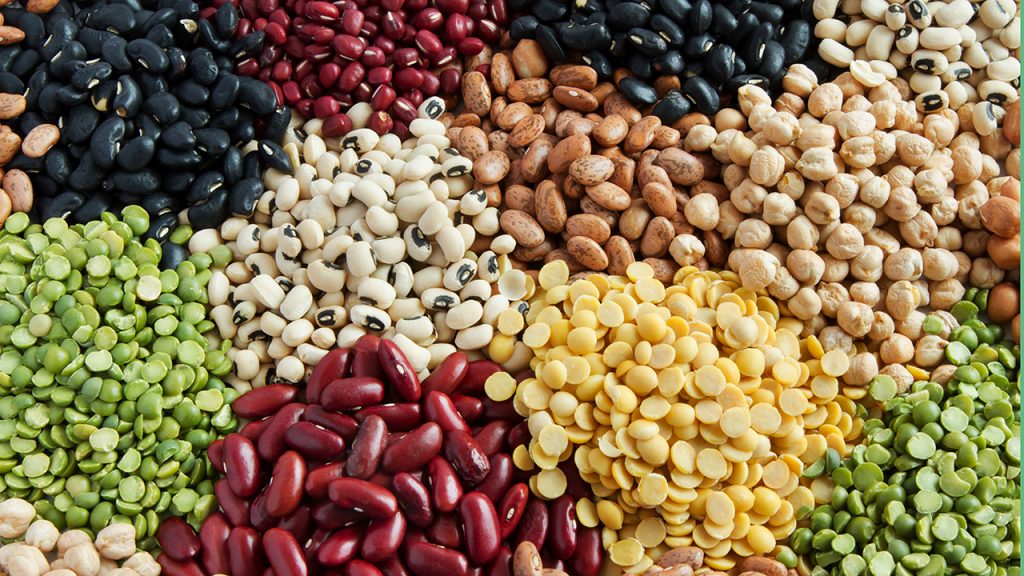Focus on Nigeria
March 2023
Country Overview
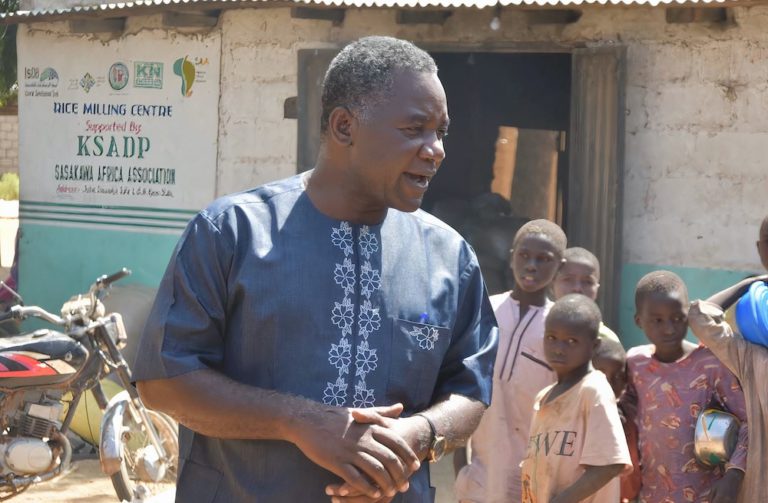
Country Overview
Agricultural transformation remains a top priority for the government of Nigeria, due to the high demand to feed a rising population of more than 200 million, and to create jobs.
Previous gains have either been stagnated or reversed by a combination of factors, such as COVID-19, climate change, and the Russia-Ukraine war, that disrupted the supply chain including the movement of fertilizers and triggered price spikes.
Consequently, smallholder farmers that account for more than 60 percent of food production, are feeling the constraints of external factors. These include poor access to improved seeds, fertilizers, inputs, markets, declining soil fertility, and limited extension and advisory services.
Over the last 30-plus years, the Sasakawa Africa Association (SAA) has supported Nigerian farmers to break the barriers and limitations to agricultural transformation. Our refreshed five-year strategy, built on Regenerative Agriculture, Nutrition-sensitive Agriculture, Market-oriented Agriculture, while addressing Capacity Building, Inclusiveness (gender & people living with disabilities), and Digitalization, is responding to and helping farmers build resilience to overcome these limitations. SAA’s work is made possible with both financial and technical support from our esteemed partners, including the Nippon Foundation, the Federal Government of Nigeria, the States, the Islamic Development Bank, and the US Agency for International Development (USAID).
In this newsletter, you will read about how SAA interventions are changing the narrative of agriculture, improving livelihoods, and demonstrating the possibilities of adequate science and technology exploration and dissemination to smallholder farmers.
Among others, SAA’s work in target communities in Nigeria has increased rice yields by over 80 percent. In addition, we promoted compost manure to hedge against the rising cost of fertilizers, improving soil fertility and creating wealth in local communities. Our intervention work with people with disabilities has contributed to pulling many from the trap of begging to the realm of production and prosperity.
The success stories covered herein also underpin the significance and imperatives of the extension system, while highlighting the need for governments to revamp the public extension system.
I encourage you to sit back and enjoy the read!
Dr. Godwin Atser,
SAA-Nigeria Country Director
VOICES FROM THE FIELD
VOICES FROM THE FIELD
Improving livelihoods through rice value chain investments
With the large volume of paddy produced in Kano state, SAA-Nigeria is enriching the lives of small-scale processors, by building the capacity of rice value chain actors.
Through the Kano State Agropastoral Development Project (KSADP), funded by the Islamic Development Bank, and the Lives and Livelihood funds, there are 44 local government interventions to enhance cultivation, processing, packaging, and marketing opportunities for the rice value chain.
SAA has established 15 rice processing centers, equipped with rice milling and destoning machines, to ease the difficulties faced by women processors, who had to travel long distances to mill paddy rice.
Each of the 15 centers has a rice dehuller and destoner capable of processing 1.3 MT and 0.8 MT of rice per hour, respectively. The new milling machines are more efficient as they not only remove the paddy husk, but polish and destone the grain.
SAA-Nigeria empowered 2,500 rice processors with improved rice parboiling, supported them with parboiling kits and trained them on production, packaging and branding techniques. With the training acquired, new data indicated the average processing output quadrupled from processing half a bag of paddy rice to two bags.
Mallama Amina Ibrahim, a mother of five, says SAA transformed her standard of living by improving her rice parboiling earnings by 40 percent. Amina explained that before the project, it was difficult for her to make any profit and often ran into losses due to the poor output quality. She adds that with the improvement in her earnings, she can now pay her children’s school fees, including her eldest, who recently joined college.
VOICES FROM THE FIELD
VOICES FROM THE FIELD
New technology helps farmers improve onion shelf life
Due to postharvest losses, related to gaps in the proper storage of produce, Nigeria loses as much as 50 percent of its onion harvests.
However, recently farmers have been embracing the Artificially Aerated Onion Storage Technology (AAOST), which is designed to increase the shelf life of harvests, and, ultimately, farmers’ income.
First piloted by SAA-Nigeria under the Kano State Agropastoral Development Project (KSADP), the technology has been widely accepted across three administrative subdivisions in Kano State.
(Moving the below table here will give more sense, as it speaks to the paragraph above)
Mallam Sanusi Abdullahi, the Chairman of the Badume market Onion Dealers Association, says that since its establishment in the market community, the 10-tonne AAOST has gained popularity among farmers, due to its efficacy in onion preservation.
BENEFICIARY COMMUNITIES/LGAs
| s/no | Community | LGA | No of the targeted beneficiaries |
| 1 | Yadakwari | Garun Mallam LGA | 750 |
| 2 | Bagwai town | Bagwai LGA | 750 |
| 3 | Badume | Bichi LGA | 750 |
Mallam Sanusi Abdullahi commented “Before the intervention, onion farmers in the region spent several years looking for dependable and cost-effective storage methods to cut post-harvest losses and sustain their businesses, but often with little success. The AAOST facility has reduced onion storage losses by about three-fold, barely six months after it was commissioned for use.”
“This storage technology by SAA is very effective; we stored 30 bags for six months, and we were able to recover almost everything, only two bags perished, compared to last year where half the onions stored perished – incredible! As a result, most of our colleagues left to explore other businesses to sustain their families. But with the introduction of SAA’s new onion storage technology, all these are stories of the past now,” he said.
A solar-powered fan keeps the Onion neck tissue and outer scales dry. The system is programmed to work 12-hours per day and the fans only kick in every alternate hour, to avoid too much air flow across the bulbs, which can lead to more losses.
Due to its proven success rate, ease of use and low maintenance cost, onion farmers are now willing to increase the number of aerated storage facilities in their locations. Each unit costs USD 6,500, equivalent to NGN 2,860,000, and the association’s leaders have started mobilizing members to raise funds to expand their facilities.
Driven by the success of the AAOST facilities in 2022 SAA, through the KSADP, is establishing an additional 20 facilities this year to help address onion storage losses and to boost farmers’ income in the state.
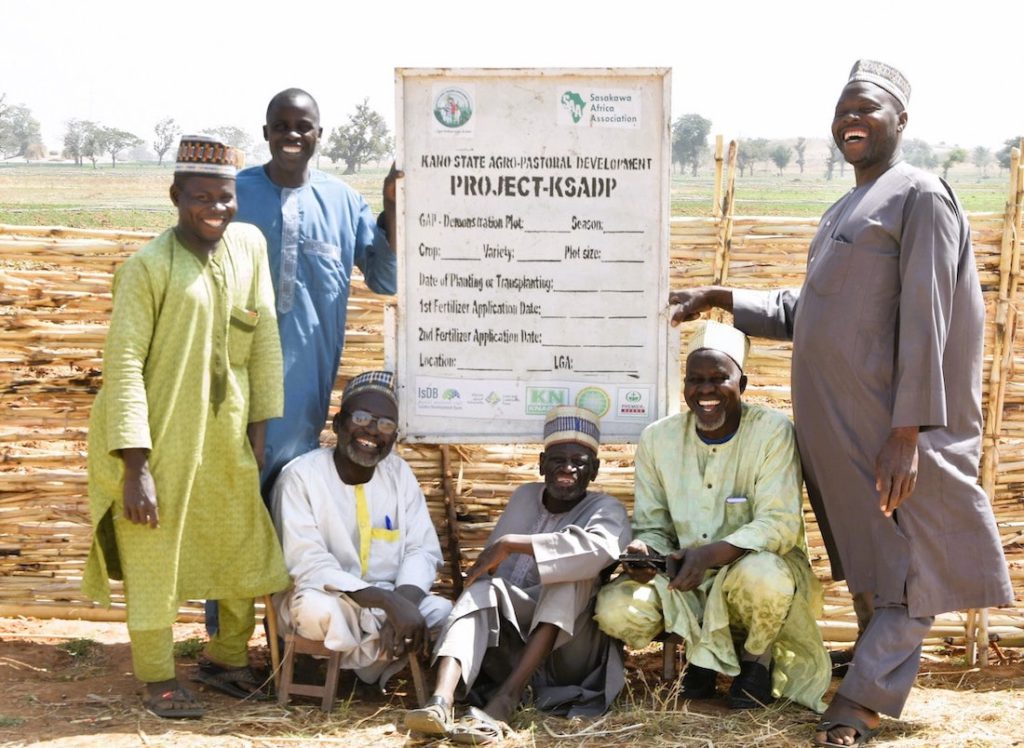
VOICES FROM THE FIELD
VOICES FROM THE FIELD
Empowering people with disabilities
In Nigeria and several other African countries, many People with Disabilities (PwDs) are resource-constrained, with some resort to begging for alms on the streets. In 2018, SAA-Nigeria initiated a program to empower PwDs, in the Tudun Wada community of Kano state, northwest Nigeria.
The Tudun Wada PwDs Association members were first trained on Good Agricultural Practices (GAP), group dynamics management, enterprise management, agribusiness, and collective market access. SAA further supported the group with quality farm inputs, enabling them to host demonstration plots and engage in individual farming activities. Following the training in the first year, the group cultivated 0.25Ha and harvested 12 bags of maize, equivalent to 1.2MT. They collectively sold all their produce that season and expanded the group farm to 0.5Ha and 1Ha in the subsequent two farming seasons.
A retired SAA Community Based Trainer (CAT), Muhammadu Yaro Tudunwada, explained that the SAA intervention transformed the lives of the group members, drawing some from street begging to become well-trained farmers capable of functioning as Community Based Facilitators (CBFs).
Tudunwada said, “The group’s success is evident in the establishment of secondary groups in Tudun Wada and Doguwa. When Sasakawa started working with them in 2018, they were happy with the harvest, and immediately increased the size of their farms the following season, which became a continuous process. They used the proceeds to set up small businesses and empower their spouses. No association member or their family is begging; they are all now experienced and prosperous farmers. I am happy to have witnessed this transformation”.
Khalid Muhammed Tudunwada, the group’s chairman, said, ‘We have stopped begging for alms on the streets of Tudun Wada and our members are now successful farmers and small traders. We engage in group farming and store farm produces, using the proceeds to support our members through low-interest loans. It will surprise you to know that even the non-disabled members of the community come to us for loans. We no longer beg; we have enough to feed and support our families”.
“SAA taught us the importance of working together as a group, and our self-confidence has been restored. We no longer see ourselves as outsiders of society and we work hard in order for our children to attend public schools, instead of following us to beg.” he continued.
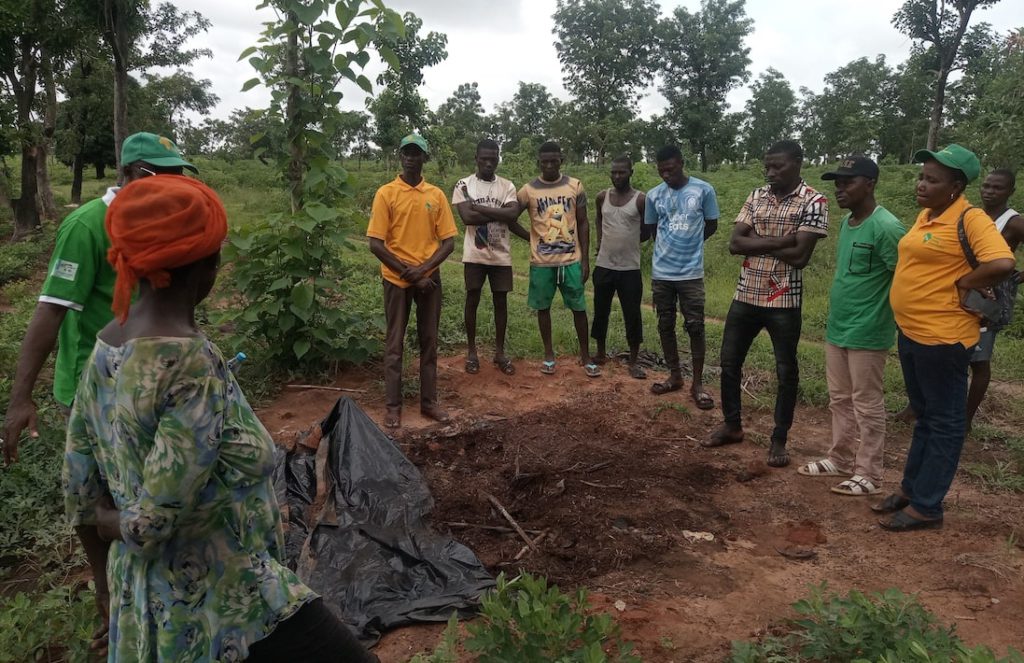
VOICES FROM THE FIELD
VOICES FROM THE FIELD
Composting technology for improved soil fertility, amidst rising fertilizer prices
Due to the rising cost of inorganic fertilizers, as a result of the Russia-Ukraine war, Nigerian farmers are turning to compost manure to reclaim soils degraded by poor agronomic choices. This innovation will ultimately improve their yields.
Improved compost making is one of the practices SAA promotes under the Regenerative Agriculture (RA) pillar, as an eco-friendly and cost-effective alternative to inorganic fertilizers. This is due to the price of inorganics soaring beyond the reach of smallholder farmers.
In 2021, SAA-Nigeria introduced compost-making technology in the Gurjawa Community of the Taura Local Government Area, in the Jigawa state. A total of 100 compost-making technology demonstrations were established in 2021, and 115 in 2022 across the states of Nasarawa, Kano, Gombe and Jigawa. A further 90 are planned for establishment in 2023.
One of the beneficiary farmers Aminu Sulaiman, spoke about how SAA boosted their capacity by training them to turn livestock waste and other biodegradable materials into compost manure. This technique involves the addition of urea and water in different layer formations, and to cover the materials in trenches, to facilitate quicker decomposition. The trained farmers hail the SAA technique as more cost-effective, than their conventional compost-making practices. Additionally, at least 50 people, mainly women and youth, have generated income through compost sales. Sulaiman is one of those, who now sells a cartload of compost manure around USD 2.
“Our farmers love the improved compost manure brought by SAA; I usually sell out before it is ready to be taken to the farm. Due to high demand, interested buyers must book ahead to secure supplies. I am happy that farmers love compost manure because it has helped them increase their yields, while benefitting me as my new source of income,” Aminu Sulaiman said.
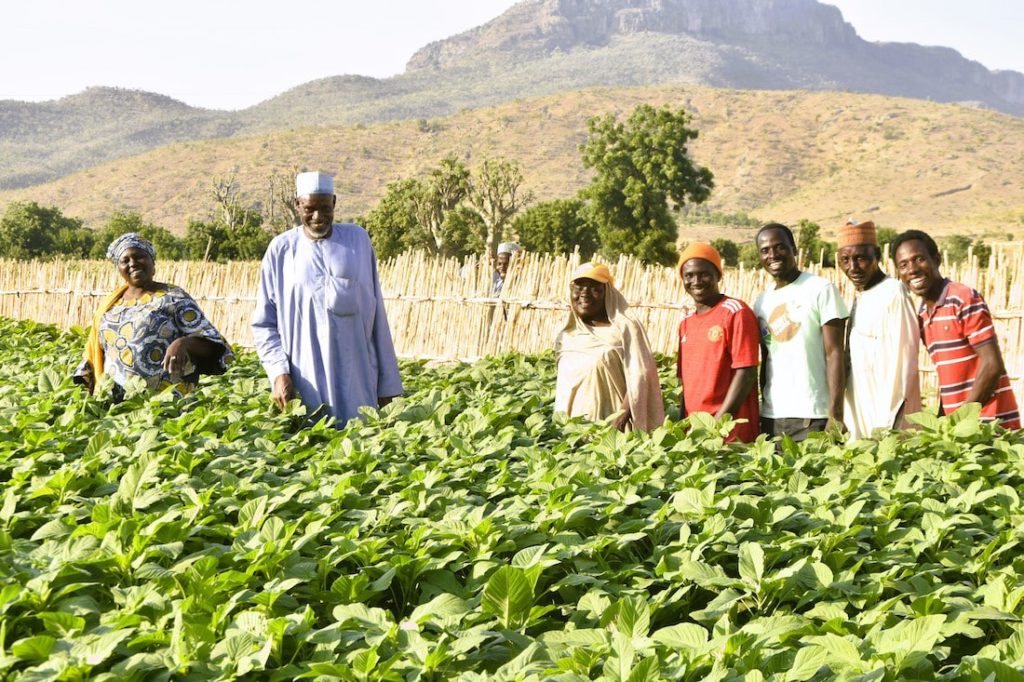
ACTIVITY REPORT
ACTIVITY REPORT
Shifting farmers’ mindsets from ‘Grow-and-Sell’ to ‘Grow-to-Sell’
SAA in partnership with the Japan International Cooperation Agency (JICA), promotes the Smallholder farmer Horticulture Empowerment Program (SHEP) to empower smallholder farmers in pursuing the market-oriented farming of horticultural crops.
The SHEP approach promotes farming-as-a-business by enhancing information exchange between farmers and market actors, changing farmers’ mindsets from ‘’Grow-and-Sell’’ to ‘’Grow-to-Sell’’.
To achieve this milestone, SAA-Nigeria is training Farmer Organizations (FOs), Commodity Association Traders/Trainers (CATs), and Agricultural Development Program (ADP) staff in Jigawa, Gombe, Kano, and Nasarawa States on MOA, driven by the SHEP approach. Participants were trained to market surveys to help them identify the vegetables to cultivate in direct response to market demand. They were also encouraged to establish and maintain market linkages to track and adjust their production to market needs.
Group member, Habibu Aliyu, 39, said “This is the community’s first attempt at farming together, even though members own individual farms. We enjoy farming as a group, as introduced to us by SAA. After harvest, we intend to expand our production using the gained proceeds; we plan to own large farms because we can already see the benefits of collective marketing.”
Apart from farmer-training, SAA organized exchange visits to promote learning among farmers. The group now owns three vegetable farms, that benefit from close-communication with local market actors. Farmers say this has helped them cut their losses, and increase their profitability as they are better informed about market demand and buyer preferences.
Muhammadu Abdullahi, the Chairman of the paddy rice farmers Multi-purpose Cooperative Society (MPCS), one of the targets farmer organizations, recalls: “Last year, Sasakawa came to our community in Dadin Kowa to teach us how to come together and approach farming-as-a-business. They promised to help us to become a vibrant group capable of supporting its members. Sasakawa, sponsored our trip to Kano state to learn from a very successful farmer group, the Kutama Multipurpose Cooperative Society(MPCS) in Karaye community. On arrival, we met with other farmer groups from other states of the country, and we interacted and learnt from each other, we also learnt about the achievements of Kutama MPCS, which include the ownership of several group farms, diversified business interests, impressive savings and financial support to members, all achieved through collective action. After the meeting, we returned home to Dadinkowa and shared our experiences with our group members”.
NEWS AND EVENTS FROM SAA FOCUS COUNTRIES
NEWS AND EVENTS FROM SAA FOCUS COUNTRIES
Annual Stakeholder Meetings held with SAA partners in Ethiopia, Mali, Nigeria and Uganda
During the first quarter of 2023, SAA has successfully organized annual stakeholders’ meetings across its four focus countries, under the following themes:
– Sustainable and Climate Resilient Agri-food System for Improved Food and Nutrition Security in Ethiopia
– Catalyzing Agricultural Intensification Nutrition and income in Uganda
– Building Resilience in Food Systems in the Face of Rising Food Demand and Climate Change in Nigeria
– Entrepreneurship in agricultural value chains: opportunities, challenges and prospects in the context of Mali.
Participants included: representatives from the ministries of agriculture, research institutions, universities, private sector and other actors from the agriculture sector of their respective countries. During the meetings, SAA shared its major achievements from 2022, and plans for 2023 in identifying areas of synergy for possible collaboration with partners. The meetings also enabled SAA to harvest gather recent research developments and agricultural innovations.
In the stakeholder meeting held in Nigeria, the following points were raised:
– Expressed grave concern for the high extension farmer ratio (1:10,000) and urged governments to fully revitalize the state ADPs towards higher functionality. Meanwhile, the use of a pluralistic extension model involving private-advisory service providers was welcomed.
– Request for SAA extension models be scaled to new geographies as SAA interventions led to improved yields and farmers’ profitability. Finally, recognizing the impact of climate change on agriculture, and particularly smallholder farmers, stakeholders agreed on a need for joint efforts, breaking silos.
For the full story in Mali, please visit
For the full story in Nigeria, please visit
For the full story in Uganda, please visit
For the full story in Ethiopia, please visit
NEWS AND EVENTS FROM SAA FOCUS COUNTRIES
Annual Stakeholder Meetings held with SAA partners in Ethiopia, Mali, Nigeria and Uganda
During the first quarter of 2023, SAA has successfully organized annual stakeholders’ meetings across its four focus countries, under the following themes:
– Sustainable and Climate Resilient Agri-food System for Improved Food and Nutrition Security in Ethiopia
– Catalyzing Agricultural Intensification Nutrition and income in Uganda
– Building Resilience in Food Systems in the Face of Rising Food Demand and Climate Change in Nigeria
– Entrepreneurship in agricultural value chains: opportunities, challenges and prospects in the context of Mali.
Participants included: representatives from the ministries of agriculture, research institutions, universities, private sector and other actors from the agriculture sector of their respective countries. During the meetings, SAA shared its major achievements from 2022, and plans for 2023 in identifying areas of synergy for possible collaboration with partners. The meetings also enabled SAA to harvest gather recent research developments and agricultural innovations.
In the stakeholder meeting held in Nigeria, the following points were raised:
– Expressed grave concern for the high extension farmer ratio (1:10,000) and urged governments to fully revitalize the state ADPs towards higher functionality. Meanwhile, the use of a pluralistic extension model involving private-advisory service providers was welcomed.
– Request for SAA extension models be scaled to new geographies as SAA interventions led to improved yields and farmers’ profitability. Finally, recognizing the impact of climate change on agriculture, and particularly smallholder farmers, stakeholders agreed on a need for joint efforts, breaking silos.
For the full story in Mali, please visit
For the full story in Nigeria, please visit
For the full story in Uganda, please visit
For the full story in Ethiopia, please visit
NEWS AND EVENTS FROM SAA FOCUS COUNTRIES
Strengthening SAA’s Monitoring and Evaluation teams
To improve its monitoring and evaluation M&E system, and thereby the capability of evidence generation, SAA commissioned training for all its M&E staff in February. The Deputy Country Director of SAA Uganda Joseph Bbemba, opened the training by emphasizing its relevance in supporting SAA in developing a harmonized M&E system across its countries to show impact.
The training focused on reviewing the existing log frame to identify data collection needs, survey methods, sampling methods, Knowledge Attitude Practice (KAP) surveys, data collection for the Household Dietary Diversity Score (HDDS), and the Food Consumption Score (FCS). Further the training shared explanations on the evaluation grid, how to extract recommendations and lessons learnt, revision of evaluation tools, generation of master lists for target farmers, data analysis and preparation of action plans.
During the training, the team conducted a field survey to collect qualitative data on KAP for Nutrition-Sensitive Agriculture, and the effectiveness of SAA-promoted interventions. The results of the survey were analyzed, discussed, and conclusions drawn. At the end of the training, the M&E teams developed draft action plan. SAA-Uganda Country Director, David Wozemba Wetaka, acknowledged the training was helpful and empowered the SAA’s entire M&E unit.
NEWS AND EVENTS FROM SAA FOCUS COUNTRIES
Strengthening SAA’s Monitoring and Evaluation teams
To improve its monitoring and evaluation M&E system, and thereby the capability of evidence generation, SAA commissioned training for all its M&E staff in February. The Deputy Country Director of SAA Uganda Joseph Bbemba, opened the training by emphasizing its relevance in supporting SAA in developing a harmonized M&E system across its countries to show impact.
The training focused on reviewing the existing log frame to identify data collection needs, survey methods, sampling methods, Knowledge Attitude Practice (KAP) surveys, data collection for the Household Dietary Diversity Score (HDDS), and the Food Consumption Score (FCS). Further the training shared explanations on the evaluation grid, how to extract recommendations and lessons learnt, revision of evaluation tools, generation of master lists for target farmers, data analysis and preparation of action plans.
During the training, the team conducted a field survey to collect qualitative data on KAP for Nutrition-Sensitive Agriculture, and the effectiveness of SAA-promoted interventions. The results of the survey were analyzed, discussed, and conclusions drawn. At the end of the training, the M&E teams developed draft action plan. SAA-Uganda Country Director, David Wozemba Wetaka, acknowledged the training was helpful and empowered the SAA’s entire M&E unit.
NEWS AND EVENTS FROM SAA FOCUS COUNTRIES
SAA’s Board Chair meets Uganda’s Minister of State for Agriculture
SAA Board Chair, Prof. Ruth Oniang’o, visited Uganda from February 12 – 17, 2023 to meet and exchange ideas with its national partners. One of the key meetings was with the Minister of State for Agriculture, Hon. Bwino Fred Kyakulaga, held at the Nakyesesa Agricultural Institute in Namulonge.
The meeting focused on strengthening existing partnerships and identifying new areas of collaboration. The Minister expressed his appreciation for SAA for empowering smallholder farmers in Uganda by disseminating improved agricultural knowledge and technologies, and sensitizing them on food and income security. He pointed out that SAA’s extension approach complements Uganda’s extension structure, and added that SAA’s sensitization message for farming-as-a-business also complements his government’s effort of implementing the Parish Development Model, to enable rural communities become income secure. Hon. Kyakulaga further indicated that SAA’s implementation strategy is well aligned with the Government of Uganda’s priorities and programmes for agricultural sector development. Prof. Oniang’o expressed her gratitude to the Ministry of Agriculture, Animal Industry and Fisheries (MAAIF) for its unwavering support of SAA.
At the end of the meeting, the Minister pledged support to SAA and requested SAA schedule a follow-up meeting to deepen partnerships in improving soil health and nutrition interventions and information sharing.
NEWS AND EVENTS FROM SAA FOCUS COUNTRIES
SAA’s Board Chair meets Uganda’s Minister of State for Agriculture
SAA Board Chair, Prof. Ruth Oniang’o, visited Uganda from February 12 – 17, 2023 to meet and exchange ideas with its national partners. One of the key meetings was with the Minister of State for Agriculture, Hon. Bwino Fred Kyakulaga, held at the Nakyesesa Agricultural Institute in Namulonge.
The meeting focused on strengthening existing partnerships and identifying new areas of collaboration. The Minister expressed his appreciation for SAA for empowering smallholder farmers in Uganda by disseminating improved agricultural knowledge and technologies, and sensitizing them on food and income security. He pointed out that SAA’s extension approach complements Uganda’s extension structure, and added that SAA’s sensitization message for farming-as-a-business also complements his government’s effort of implementing the Parish Development Model, to enable rural communities become income secure. Hon. Kyakulaga further indicated that SAA’s implementation strategy is well aligned with the Government of Uganda’s priorities and programmes for agricultural sector development. Prof. Oniang’o expressed her gratitude to the Ministry of Agriculture, Animal Industry and Fisheries (MAAIF) for its unwavering support of SAA.
At the end of the meeting, the Minister pledged support to SAA and requested SAA schedule a follow-up meeting to deepen partnerships in improving soil health and nutrition interventions and information sharing.
NEWS AND EVENTS FROM SAA FOCUS COUNTRIES
SAA-Ethiopia celebrate Japanese National Day
On February 22, 2023, SAA-Ethiopia participated in the Japanese National Day celebration hosted by the Embassy of Japan in Ethiopia, at the Ambassador’s Residence in the country’s capital Addis Ababa. In attendance were government officials, the diplomatic corps, representatives of international organizations, NGOs, and private companies. In her opening speech, H.E. Takako Ito, the Japanese Ambassador to Ethiopia, highlighted Japan’s longstanding cooperation with Ethiopia, promising to strengthen it in the future. In light of Japan’s $30 billion pledge for Africa at the TICAD 8 conference in Tunisia, H.E. Ito encouraged African countries, including Ethiopia, to create a more enabling environment for investors.
During the exhibition, SAA showcased its approaches and interventions in addressing food and nutrition security, as well as improving incomes among the rural communities of Africa. Among the items exhibited by SAA were prototypes of postharvest technologies such as shellers/threshers and airtight grain storage technologies, as well as digitalized extension tools such as talking books and digital classroom systems, all of which drew the interest of visitors.
For the full story, please visit
NEWS AND EVENTS FROM SAA FOCUS COUNTRIES
SAA-Ethiopia celebrate Japanese National Day
On February 22, 2023, SAA-Ethiopia participated in the Japanese National Day celebration hosted by the Embassy of Japan in Ethiopia, at the Ambassador’s Residence in the country’s capital Addis Ababa. In attendance were government officials, the diplomatic corps, representatives of international organizations, NGOs, and private companies. In her opening speech, H.E. Takako Ito, the Japanese Ambassador to Ethiopia, highlighted Japan’s longstanding cooperation with Ethiopia, promising to strengthen it in the future. In light of Japan’s $30 billion pledge for Africa at the TICAD 8 conference in Tunisia, H.E. Ito encouraged African countries, including Ethiopia, to create a more enabling environment for investors.
During the exhibition, SAA showcased its approaches and interventions in addressing food and nutrition security, as well as improving incomes among the rural communities of Africa. Among the items exhibited by SAA were prototypes of postharvest technologies such as shellers/threshers and airtight grain storage technologies, as well as digitalized extension tools such as talking books and digital classroom systems, all of which drew the interest of visitors.
For the full story, please visit
NEWS AND EVENTS FROM SAA FOCUS COUNTRIES
Farmer organization groups from Nigeria, Ghana, Zimbabwe trained in Japan
The Deputy Country Director SAA-Nigeria, Dr Abdulhamid Gambo, visited Japan from February 3 -22, 2023 for the training program titled, ‘2022 Human Resource Development for Establishment of Food Value Chain’. The programme was funded by the Japanese Ministry of Agriculture, Forestry and Fisheries, and organized by SAA in partnership with the Nippon Biodiesel Fuel Co., Ltd., and the Institute for the Development of Agricultural Cooperation in Asia (IDACA).
The training was attended by representatives of farmer organizations and NGOs from Nigeria, Ghana and Zimbabwe. During their stay in Japan, the trainees learned from the experience of Japanese agricultural cooperatives, with topics varying from organizational farmer-led activities, collective sales and purchasing, credit business, agricultural advisory services and leadership programs, to agro-processing and marketing initiatives. The participants also visited agricultural produce inspection centers, input shops and affiliated banks and hospitals. The participants are expected to share their experiences with the members of their respective organizations back home.
NEWS AND EVENTS FROM SAA FOCUS COUNTRIES
Farmer organization groups from Nigeria, Ghana, Zimbabwe trained in Japan
The Deputy Country Director SAA-Nigeria, Dr Abdulhamid Gambo, visited Japan from February 3 -22, 2023 for the training program titled, ‘2022 Human Resource Development for Establishment of Food Value Chain’. The programme was funded by the Japanese Ministry of Agriculture, Forestry and Fisheries, and organized by SAA in partnership with the Nippon Biodiesel Fuel Co., Ltd., and the Institute for the Development of Agricultural Cooperation in Asia (IDACA).
The training was attended by representatives of farmer organizations and NGOs from Nigeria, Ghana and Zimbabwe. During their stay in Japan, the trainees learned from the experience of Japanese agricultural cooperatives, with topics varying from organizational farmer-led activities, collective sales and purchasing, credit business, agricultural advisory services and leadership programs, to agro-processing and marketing initiatives. The participants also visited agricultural produce inspection centers, input shops and affiliated banks and hospitals. The participants are expected to share their experiences with the members of their respective organizations back home.
NEWS AND EVENTS FROM SAA FOCUS COUNTRIES
Technical workshop in Mali validates SAA’s Community-Based Seed Multiplication Model
In January, SAA held a workshop to validate the Community-Based Seed Multiplication Model (CBSM), at the National Directorate of Agriculture (DNA) in the Malian capital of Bamako. The objectives were to share evidence on the effectiveness and scalability of the model and recommendations were made for the CBSM model to be integrated into the national extension system, as well as the curricula of agricultural training colleges and universities.
This workshop succeeded a previous session held in Kayes in 2021, where the DNA requested to be involved in the implementation of the CBSM model. This informed the SAA’s collaboration with the DNA and the University of Ségou, in implementing the CBSM model during the 2022-2023 agricultural campaign. Two Post-Harvest Training Centers (PHTCs), in Samanko and Dacoumani, were selected with focus on maize and millet, respectively. During the validation workshop, the CBSM model proved effective for smallholder farmers as it improved the access to quality seeds at the local level. Below are some of the recommendations from the most recent Bamako workshop:
– Conform the CBSM model to agricultural development policies and national campaign plans
– Involve and develop linkages among DNA, agricultural training centers, universities and farmer organizations, for extension of the CBSM model
– Strengthen the capacities of agricultural extension systems, value actors and lecturers at educational institutions in supporting implementation of CBSM model
– SAA to share knowledge and experiences on CBSM model with agricultural colleges so that they can integrate the model into their training programs.
NEWS AND EVENTS FROM SAA FOCUS COUNTRIES
Technical workshop in Mali validates SAA’s Community-Based Seed Multiplication Model
In January, SAA held a workshop to validate the Community-Based Seed Multiplication Model (CBSM), at the National Directorate of Agriculture (DNA) in the Malian capital of Bamako. The objectives were to share evidence on the effectiveness and scalability of the model and recommendations were made for the CBSM model to be integrated into the national extension system, as well as the curricula of agricultural training colleges and universities.
This workshop succeeded a previous session held in Kayes in 2021, where the DNA requested to be involved in the implementation of the CBSM model. This informed the SAA’s collaboration with the DNA and the University of Ségou, in implementing the CBSM model during the 2022-2023 agricultural campaign. Two Post-Harvest Training Centers (PHTCs), in Samanko and Dacoumani, were selected with focus on maize and millet, respectively. During the validation workshop, the CBSM model proved effective for smallholder farmers as it improved the access to quality seeds at the local level. Below are some of the recommendations from the most recent Bamako workshop:
– Conform the CBSM model to agricultural development policies and national campaign plans
– Involve and develop linkages among DNA, agricultural training centers, universities and farmer organizations, for extension of the CBSM model
– Strengthen the capacities of agricultural extension systems, value actors and lecturers at educational institutions in supporting implementation of CBSM model
– SAA to share knowledge and experiences on CBSM model with agricultural colleges so that they can integrate the model into their training programs.
